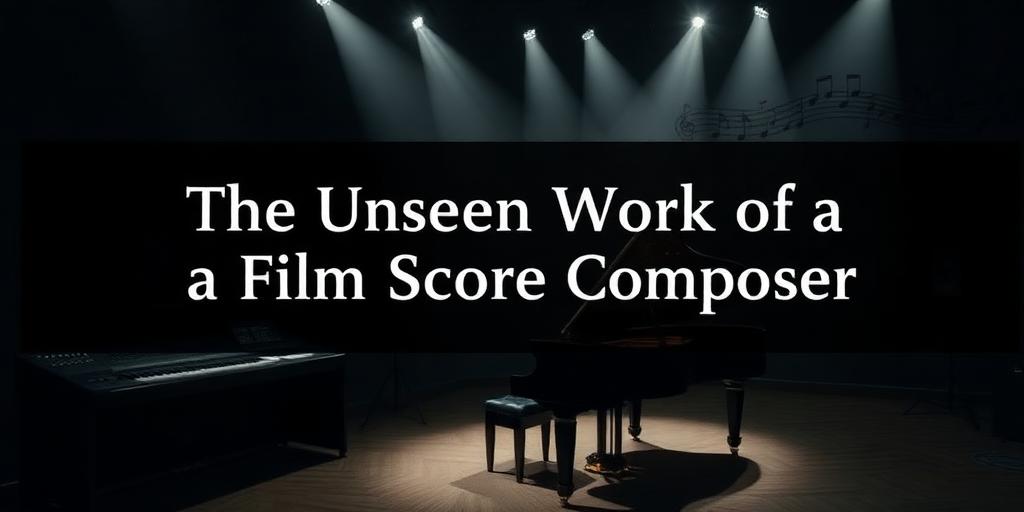The flickering images on screen, the compelling narratives, and the star-studded performances often captivate audiences, yet a profound and often unseen force shapes the very essence of a cinematic experience: the film score. Far from being a mere accompaniment, the work of a film score composer is an intricate blend of artistic vision, psychological manipulation, and technical mastery, operating largely behind the curtain of mainstream attention. Understanding this profound contribution reveals the true depth of the cinematic art form.
The Genesis of Sound: From Script to Score
The journey of a film score begins long before a single note is composed. A film score composer's initial task is to deeply immerse themselves in the film's narrative, characters, and thematic underpinnings. This involves extensive consultations with the director—often referred to as 'spotting sessions'—where specific moments requiring musical enhancement are identified. Here, the composer deciphers the director's vision, exploring how music can amplify emotion, foreshadow events, establish setting, or even provide an inner monologue for characters. It is a critical, collaborative phase where the emotional architecture of the film is mapped out, leading to the conceptualization of themes and leitmotifs that will subtly guide the audience's perception. This deep dive into the story forms the bedrock for a truly effective and cohesive score.
Crafting Emotional Resonance: Thematic Development and Psychological Impact
Once the foundational concepts are established, the composer embarks on the painstaking process of thematic development. A great film score is rarely a collection of disparate tracks; rather, it is an interwoven tapestry of recurring musical ideas, or themes, associated with characters, places, or emotions. Consider the subtle variations of a character's theme as their journey evolves, or the ominous shift in a villain's motif as their power grows. This is the composer's craft: to translate abstract narrative elements into tangible soundscapes that resonate deeply with the human psyche. The choice of instrumentation—a lone piano for intimacy, a full orchestra for grandeur, or an electronic soundscape for tension—is meticulously selected to evoke precise emotional responses, often below the conscious awareness of the viewer. The unseen work here is the psychological precision with which these aural cues are deployed to shape audience sentiment.
Technical Acumen and Studio Realization: Beyond the Melody
The artistic vision of a film score composer must be matched by formidable technical acumen. Beyond the initial melodic ideas, the composer is responsible for orchestration, arranging the music for specific instruments or vocalists, and often for the technical realization in a recording studio. This process involves navigating complex software, collaborating with musicians, and overseeing recording sessions, often under immense time pressure. For modern scores, this can also include sophisticated sound design, synthesis, and digital manipulation, blurring the lines between traditional music and ambient effects. The ability to translate an ethereal concept into a fully produced, polished sonic entity that integrates seamlessly with the visuals is a testament to the composer's multifaceted skill set.
The Invisible Hand: Why the Score's Absence is its Presence
Ultimately, the most profound aspect of a film score composer's unseen work is its very ability to vanish into the fabric of the film. A truly effective score doesn't draw attention to itself; it enhances, supports, and elevates the narrative without overtly declaring its presence. When a score is successful, audiences often feel the emotions it elicits without consciously registering the music itself. It is the invisible hand that steers the emotional journey, that builds suspense, evokes empathy, or ignites joy, all while remaining an integrated, organic part of the cinematic whole. This subtle power underscores the indispensable, yet often overlooked, artistry of the film score composer. Their dedicated craft ensures that the film's emotional core resonates long after the credits roll.









